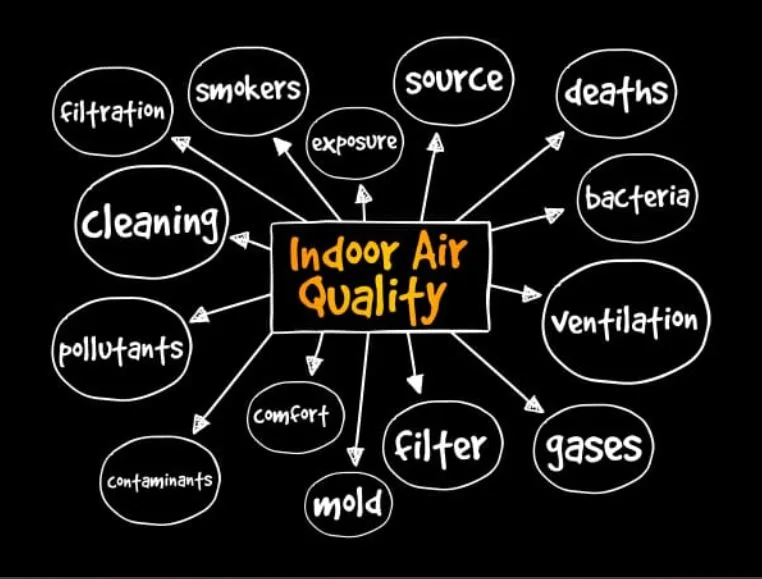The Role of HVAC in Indoor Air Quality
People often associate HVAC services with just heating and cooling. Although this is true, it also includes ventilation and air conditioning, which impact air quality. Dedicated air quality services enable you to reduce pollutants, including dust, pollen, pet dander, and other allergens. Here are a few roles of heating, ventilation, and air conditioning in air quality:
Filtering Airborne Pollutants
Modern heating and cooling systems feature filters that trap and remove airborne particles from the air circulated in your house. The filters can capture fine dust and pollen floating in the air, preventing them from entering your home through vents and ducts. Some filters are also designed to trap microscopic allergens, such as bacteria and viruses.
You can also use HEPA filters to trap very fine particles at higher efficiency rates, leaving your indoor air cleaner with each circulation. Filtering airborne allergens may help reduce the chances of respiratory irritation and make your home safer for people with allergies. HVAC filters are also replaceable, allowing you to maintain clean air throughout the year. Some filters can be cleaned and reused, while others are disposed of once they’re used.
Consult a contractor to help you select the appropriate filter and determine the optimal replacement schedule for your system and specific needs. If you live in dusty areas, such as near highways, factories, and construction sites, replace your filters more frequently. You should also replace filters more often if you have pets or a large family. Timely replacements help keep your indoor air cleaner and safer.
Circulating Fresh Air
Stale indoor air often contains pollutants that accumulate over time because they have no escape route. Routine activities, such as breathing, petting your dog or cat, cleaning, and cooking, all release pollutants into the air. Breathing produces carbon dioxide, while pets shed dander. Cleaning agents may contain volatile organic compounds. Other pollutants include dust and pollen from outdoors. Breathing air filled with pollutants can increase the chances of eye, nose, and throat irritations and may lead to respiratory issues or allergies. Such complications are more likely to happen when pollutants have no exit route.
Ventilation systems constantly circulate air inside your spaces, replacing stale indoor air with fresh outdoor air. The systems draw air out of your home, creating space for fresh air to flow through the vents. Air entering your home is filtered, making it cleaner and diluting existing pollutants. By circulating filtered air throughout your home, ventilation systems provide access to fresh air throughout the year. Consult a contractor to determine the ideal size unit for your home and make sure the air circulates at a suitable rate.
Controlling Humidity Levels
Humidity control is a key component of modern heating, ventilation, and air conditioning systems. Increased moisture levels promote the growth of mold and mildew. Mold and mildew produce spores that have potential health impacts if they enter your body. Pathogens also increase the chances of bacterial and viral infections.
Ventilation systems circulate indoor air, replacing humid air with dry, fresh air. If the indoor air is overly dry, ventilation systems can replace it with a more humid supply, allowing you to manage moisture levels. Modern systems feature built-in humidifiers and dehumidifiers that help maintain humidity levels within healthy ranges. Contractors also provide standalone humidifiers and dehumidifiers to help you manage humidity levels in specific rooms, like attics or basements.
By regulating humidity, modern systems help improve indoor air quality and safety. Heaters and AC units also regulate air temperature, increasing comfort levels in your home. During the hot months of the year, the AC cools your home by drawing out the warm air and replacing it with cooler, humid air. In winter and cold weather, heating units warm your home, mitigating the adverse effects of cold, dry air. This regulation may help improve your overall indoor air quality and comfort.
Speak to an HVAC Contractor Today
Contractors provide a comprehensive range of services to verify that your heating, cooling, and air quality systems operate efficiently throughout the year. You can call them for new installations, repairs, and routine servicing. Some contractors also offer round-the-clock emergency services. Speak to an HVAC contractor today to find out more about their services or to schedule a routine maintenance check.






